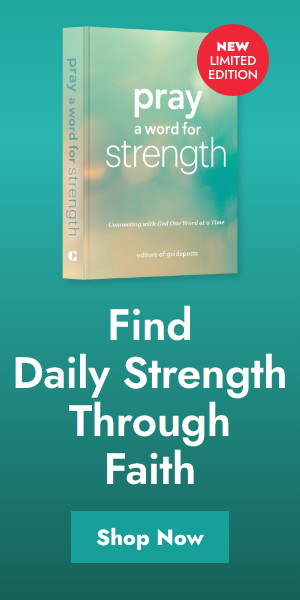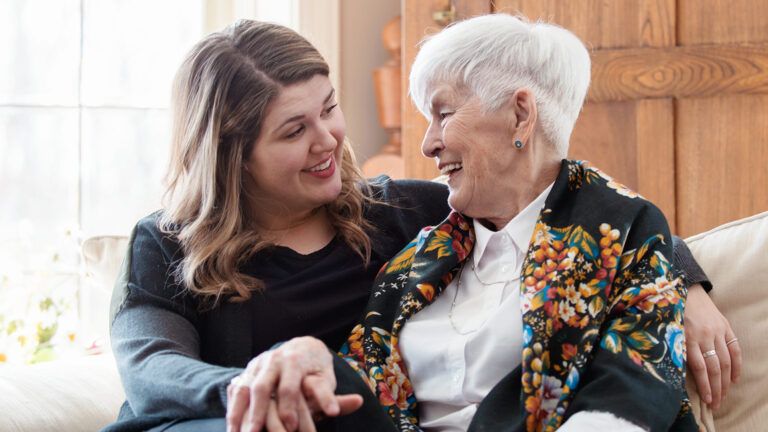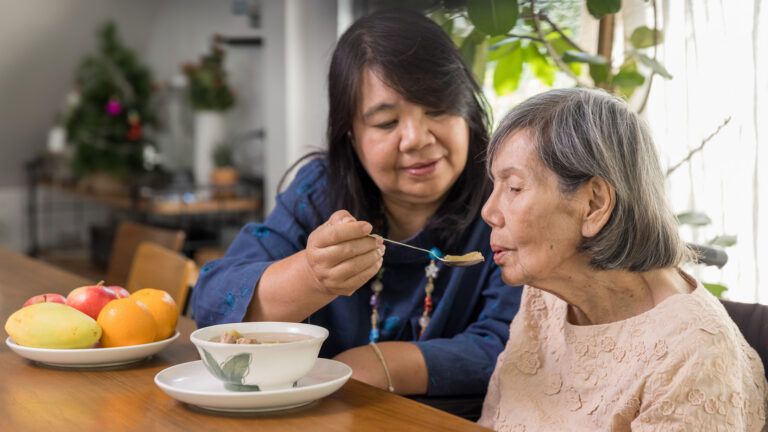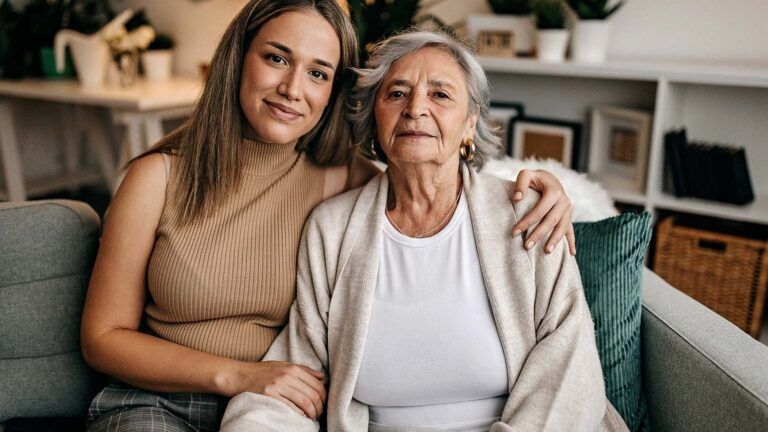Julie Hayes is the Content Manager at Benjamin Rose Institute on Aging.
It can be peaceful and cozy to watch a snowfall from the comfort of home. But, as everyone knows, heading outside to navigate a storm or its aftermath is another story. Navigating ice, snow and slush poses a danger at any age, but older adults are at particular risk of taking a tumble under such conditions. It doesn’t have to be slippery, however, for your loved one to be at higher risk of falling, as the danger increases as people age.
According to the CDC Injury Center, around 25 percent of adults aged 65 and over will experience a fall over the course of a year. These falls are the cause of more than 2.8 million injuries that require hospital treatment, such as hip fractures and traumatic brain injury, resulting in over 800,000 hospitalizations and more than 27,700 deaths annually. So, it’s important for you as a caregiver to be vigilant about reducing your loved one’s fall risks.
There is much you can do to make conditions safer for the older adult in your care. Falls that require a doctor’s visit or hospitalization can have major physical, emotional and financial consequences. If your loved one does fall and is anxious about it happening again, he or she may even begin to avoid daily activities or insist on staying at home where surroundings feel more secure. The good news is that you can take steps to protect your loved one when you know how to identify and prevent fall hazards.
What factors put your loved one at higher risk of falling?
- Age: People 65 and older are at the highest risk, and the risk increases annually. According to a CDC report, 37 percent of people aged 85 and above reported a fall, which is 10 percent more than those ages 65 to 74.
- Difficulties with balance and mobility
- Chronic conditions: Dementia, Parkinson’s, arthritis, stroke and other common chronic conditions heighten fall risk.
- Memory loss
- Muscle weakness
- Vision problems
- Surroundings: Both the home and outdoor areas can pose tripping hazards. Places with uneven pavement, unstable stairs, wet floors, hard-to-see curbs, etc., can present serious dangers.
- Prescription drug side effects
- Depression
- Previous falls
Wintertime is especially hazardous, and even more so for older adults, who are more prone than people in other age categories to fall at this time of year. Often, ice on streets or sidewalks is hard to see, or is obscured by snow. Wet shoes and boots can also track snow inside the home, and once it melts, it can leave slippery puddles on floors.
How can you help protect your loved one from falling?
A lot of falls are preventable. When you understand the risks and how to decrease them, you can do much to keep your loved one safer. The following pointers can help greatly:
1. Talk to your loved one’s physician about fall risks: Be proactive. Have a conversation with the doctor before a fall occurs. Ask about side effects of prescriptions that could increase the risk of falling, and how combining multiple medications might impact the risk. Discuss your loved one’s specific health issues. The doctor should be able to suggest possible interventions tailored to your loved one’s specific circumstances.
2. Try to keep your loved one moving: Regular exercise can help offset risks caused by muscle weakness and certain chronic conditions such as Parkinson’s. Physical activity can also improve balance and gait, which is helpful to avoiding falls. Consider exercise DVDs or online demonstrations, as well as classes tailored to older adults. A number are available, including those from organizations such as SilverSneakers and More Life Health. Look for one that seems to fit your loved one’s abilities and needs. Don’t forget to check with his or her doctor before starting out to make sure the exercise program is appropriate and safe.
3. Make an appointment for an eye exam: Vision impairment and outdated eyewear/contact prescriptions can significantly affect fall risks. Make sure your loved one visits an eye doctor regularly to stay on top of any vision issues. It’s important also to ask for tests for cataracts and macular degeneration, which are common in older adults.
4. Assess your loved one’s surroundings: Any part of the home—from the bathroom to the basement and the porch to steps—can pose fall hazards. This can be tricky because not every risk is readily apparent or even visible. Some organizations will provide professionals who specialize in aging to assess your loved one’s environment for you, or you can use home assessment tools and checklists as guides for your own thorough investigation. Carefully take into consideration:
- Lighting
- Any clutter or cords
- Whether stairs, handrails and step stools are adequately stable
- Loose, torn or uneven carpets and throw rugs
- Traction of floors
- Height and placement of shelves
5. Install assistive devices: Properly installed grab bars, non-slip treads, raised toilet seats and shower benches can do much to prevent falls.
6. Be especially careful in wintertime:
- Get your loved one a sturdy pair of boots or shoes with proper traction
- Pour salt on walkways or driveways before snow is forecast. If you don’t have rock salt, cat litter and sand are good substitutes.
- Shovel snow and ice to create clear paths before your loved one ventures outside.
- When it’s icy, pull up to building entrances to drop your loved one if this is allowed, and if he or she is able to navigate safely without your assistance.
- Slow down. If your loved one sees you walking fast, he or she might rush to catch up to you.
- If the weather is inclement when your loved one has an appointment or errand to run, you may want to postpone, cancel or reschedule. Safety comes first!





